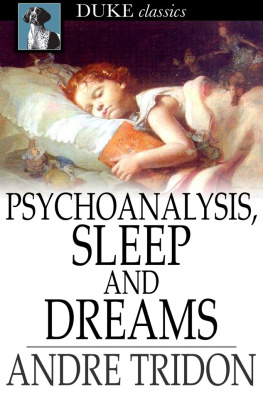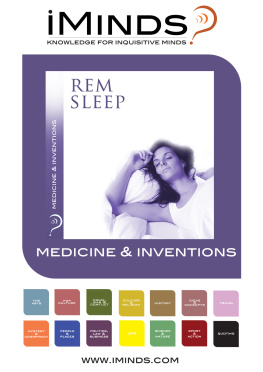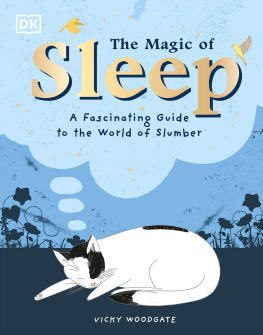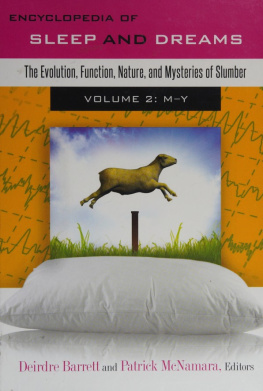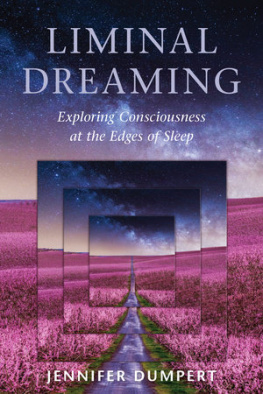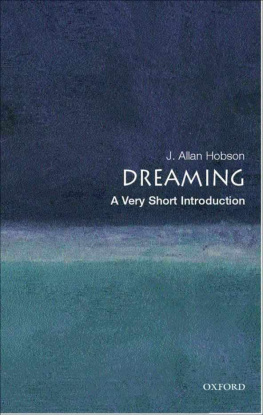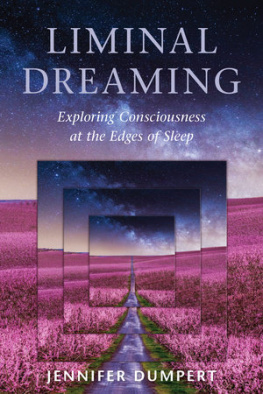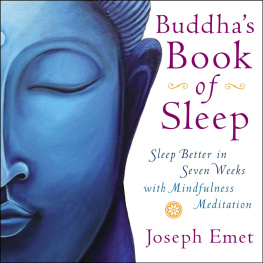PSYCHOANALYSIS, SLEEP AND DREAMS
* * *
ANDRE TRIDON
*
Psychoanalysis, Sleep and Dreams
First published in 1921
ISBN 978-1-62013-815-1
Duke Classics
2014 Duke Classics and its licensors. All rights reserved.
While every effort has been used to ensure the accuracy and reliability of the information contained in this edition, Duke Classics does not assume liability or responsibility for any errors or omissions in this book. Duke Classics does not accept responsibility for loss suffered as a result of reliance upon the accuracy or currency of information contained in this book.
Contents
*
Psychoanalysis Sleep and Dreams
*
"Tridon applies the psychoanalytical doctrine to a number of everydayproblems, a business that ought to be undertaken on a far more extensivescale. His chapters on the psychology of war hysteria and of comstockeryare acute and constructive."H. L. Mencken.
"His presentation of psychoanalysis is admirable."New York MedicalJournal.
*
For
ADLE LEWISOHN
I wish to thank Dr. J. W. Brandeis, Dr. N. Philip Norman, and Dr. GregoryStragnell, for valuable data and editorial assistance, and Mr. Carl Dreherwho lent himself to many experiments.
Preface
*
St. Augustine was glad that God did not hold him responsible for hisdreams. From which we may infer that his dreams must have been "human, alltoo human" and that he experienced a certain feeling of guilt on accountof their nature.
His attitude is one assumed by many people, laymen and scientists, some ofthem concealing it under a general scepticism as to dream interpretation.
Few people are willing to concede as Nietzsche did, that "nothing is moregenuinely ourselves than our dreams."
This is why the psychoanalytic pronouncement that dreams are thefulfilment of wishes meets with so much hostility.
The man who has a dream of gross sex or ego gratification dislikes to haveothers think that the desire for such gross pleasure is a part of hispersonality. He very much prefers to have others believe that someextraneous agent, some whimsical power, such as the devil, forced suchthoughts upon him while the unconsciousness of sleep made himirresponsible and defenceless.
This is due in part to the absurd and barbarous idea that it is meet toinflict punishment for mere thoughts, an idea which is probably as deeplyrooted in ignorant minds in our days as it was in the mind of the Romanemperor who had a man killed because the poor wretch dreamed of theruler's death.
We must not disclaim the responsibility for our unconscious thoughts asthey reveal themselves through dreams. They are truly a part of ourpersonality. But our responsibility is merely psychological; we should notpunish people for harbouring in their unconscious the lewd or murderouscravings which the caveman probably gratified in his daily life; norshould we be burdened with a sense of sin because we cannot drive out ofour consciousness certain cravings, biologically natural, but sociallyunjustifiable.
The first prerequisite for a normal mental life is the acceptance of allbiological facts. Biology is ignorant of all delicacy.
The possible presence of broken glass, coupled with the fact that manlacks hoofs, makes it imperative for man to wear shoes.
The man who is unconsolable over the fact that his feet are too tenderin their bare state to tread roads, and the man who decides to ignorebroken glass and to walk barefoot, are courting mental and physicalsuffering of the most useless type.
He who accepts the fact that his feet are tender and broken glassdangerous, and goes forth, shod in the proper footgear, will probablyremain whole, mentally and physically.
When we realize that our unconscious is ours and ourselves, but not of ourown making, we shall know our limitations and our potentialities and befree from many fears.
No better way has been devised for probing the unconscious than the honestand scientific study of dreams, a study which must be conducted with thecare and the freedom from bias that characterize the chemist's or thephysicist's laboratory experiments.
Furthermore, dream study and dream study alone, can help us solve aproblem which scientists have generally disregarded or considered assolved, the tremendous problem of sleep.
Algebra and Latin, which are of no earthly use to 999/1000 of thosestudying them, are a part of the curriculum of almost every high school.Sleep, in which we spend one-third of our life, is not considered as ofany importance.
How could we understand sleep unless we understood the phenomena whichtake place in sleep: dreams?
Even Freud, whose research work lifted dream study from the level ofwitchcraft to that of an accurate science, seems to have been littleconcerned with the enigma of sleep and sleeplessness.
This book is an attempt at correlating sleep and dreams and at explainingsleep through dreams.
Briefly stated, my thesis is that we sleep in order to dream and to be fora number of hours our simpler and unrepressed selves. Sleeplessness is dueto the fact that, in our fear of incompletely repressed cravings, we donot dare to become, through the unconsciousness of sleep, our primitiveselves. In nightmares, repressed cravings which seek gratification under asymbolic cloak, and are therefore unrecognizable, cause us to be torturedby fear.
The cure for sleeplessness and nightmares is, accordingly, the acceptanceof biological facts observable in our unconscious and our willingness togrant, through the unconsciousness of sleep, dream gratification toconscious and unconscious cravings of a socially objectionable kind whichwe must, however, accept as a part of our personality.
February, 1921.
121 Madison Avenue
New York City
Chapter I - Sleep Defined
*
Literary quotations and time-worn stereotypes exert a deplorable influenceon our thinking. They lead us to consider certain open questions assettled, certain puzzling problems as solved.
From time immemorial, the unthinking and thinking alike, have accepted theidea of a kinship between sleep and death. Expressions like "eternalsleep" show by the frequency with which they recur, how constantlyassociated the two ideas are in the average mind.
Not only is that association absurd but its consequences are regrettable,at least from one point of view: if sleep is a form of death, the psychicphenomena connected with it are bound to be misinterpreted and eithergranted a dignity they do not deserve or scornfully ignored.
The superstitious may loose all critical sense and see in sleep and sleepthinking something mysterious and mystical. The scientist, on the otherhand, may consider such phenomena as beneath his notice.
No sober appreciation of sleep and dreams can be expected from any one whoassociates in any way the idea of sleep and the idea of death.
Respiration seems to be the essential feature of life, and its lack, theessential feature of death. As long as respiration takes place, the twoferments of the body, pepsin and trypsin, break up insoluble foodmolecules into soluble acid molecules which are then absorbed by the bloodand carried to the cells of the body where they are utilized to build upnew solid cell matter.
When respiration ceases, a degree of acidity is reached which enables thetwo ferments to digest the body of disintegrating each cell. This isaccording to Jacques Loeb the meaning of death.

